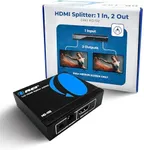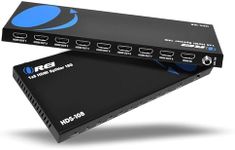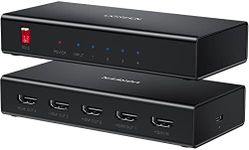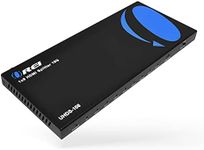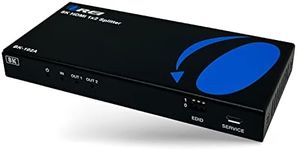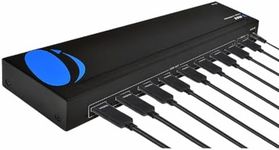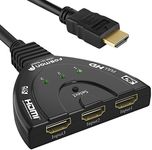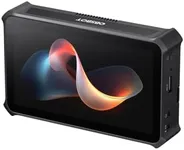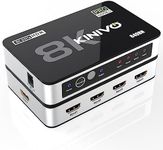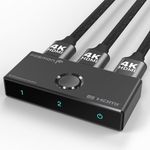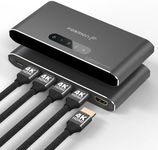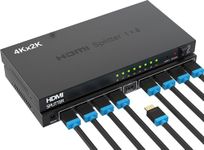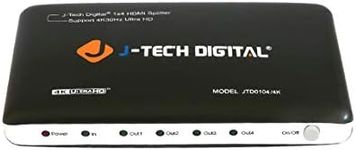Buying Guide for the Best Hdmi Splitters
When choosing an HDMI splitter, it's important to understand what the device does and how it fits your needs. An HDMI splitter takes a single HDMI input and distributes it to multiple outputs, allowing you to display the same video and audio signal on several screens at once. To pick the best HDMI splitter for your setup, you should consider the number of devices you want to connect, the quality of the signal you need, and any special features that might be important for your use case. Understanding the key specifications will help you make a choice that ensures compatibility and performance.Number of OutputsThe number of outputs refers to how many screens or devices you can connect to the splitter at the same time. This is important because you need to match the splitter to the number of displays you want to use. Splitters commonly come in 1x2 (one input, two outputs), 1x4, 1x8, and so on. If you only need to connect two TVs, a 1x2 splitter is enough. For more screens, choose a splitter with more outputs. Always consider if you might want to add more displays in the future, as it's easier to have a few extra outputs than to buy a new splitter later.
Supported ResolutionSupported resolution tells you the maximum video quality the splitter can handle, such as 1080p (Full HD), 4K, or even 8K. This is important because if your source device (like a Blu-ray player or game console) and your TVs support high resolutions, your splitter must also support them to avoid losing picture quality. Splitters are usually labeled with their maximum supported resolution. If all your devices are Full HD, a 1080p splitter is fine. If you have 4K devices, make sure the splitter supports 4K. Always match the splitter's resolution to the highest resolution you plan to use.
HDMI VersionThe HDMI version (like HDMI 1.4, 2.0, or 2.1) determines what features and bandwidth the splitter can handle, such as higher resolutions, refresh rates, and advanced audio formats. This is important because newer HDMI versions support more features. For example, HDMI 2.0 supports 4K at 60Hz, while HDMI 2.1 supports 8K and advanced gaming features. Check what HDMI version your source and display devices use, and pick a splitter that matches or exceeds that version to ensure full compatibility and performance.
HDCP SupportHDCP (High-bandwidth Digital Content Protection) is a form of copy protection used by many streaming devices, Blu-ray players, and other sources. If your splitter doesn't support the right HDCP version, you might get a blank screen or error message. Most modern devices use HDCP 2.2 or higher, especially for 4K content. Make sure your splitter supports the same HDCP version as your source and display devices to avoid compatibility issues.
Powered vs. PassiveHDMI splitters can be powered (require an external power source) or passive (no power needed). Powered splitters are more reliable for longer cable runs and higher resolutions, as they boost the signal and reduce the chance of signal loss or flickering. Passive splitters are simpler but may only work well for short cables and lower resolutions. If you plan to use long HDMI cables or high-resolution signals, a powered splitter is usually the better choice.
Audio SupportSome HDMI splitters can handle advanced audio formats like Dolby TrueHD or DTS-HD Master Audio, while others only support basic stereo sound. This matters if you want to use surround sound systems or high-quality audio. Check what audio formats your devices use and make sure the splitter can pass through those formats. If you only use TV speakers, basic audio support is enough, but for home theaters, look for splitters with advanced audio compatibility.
